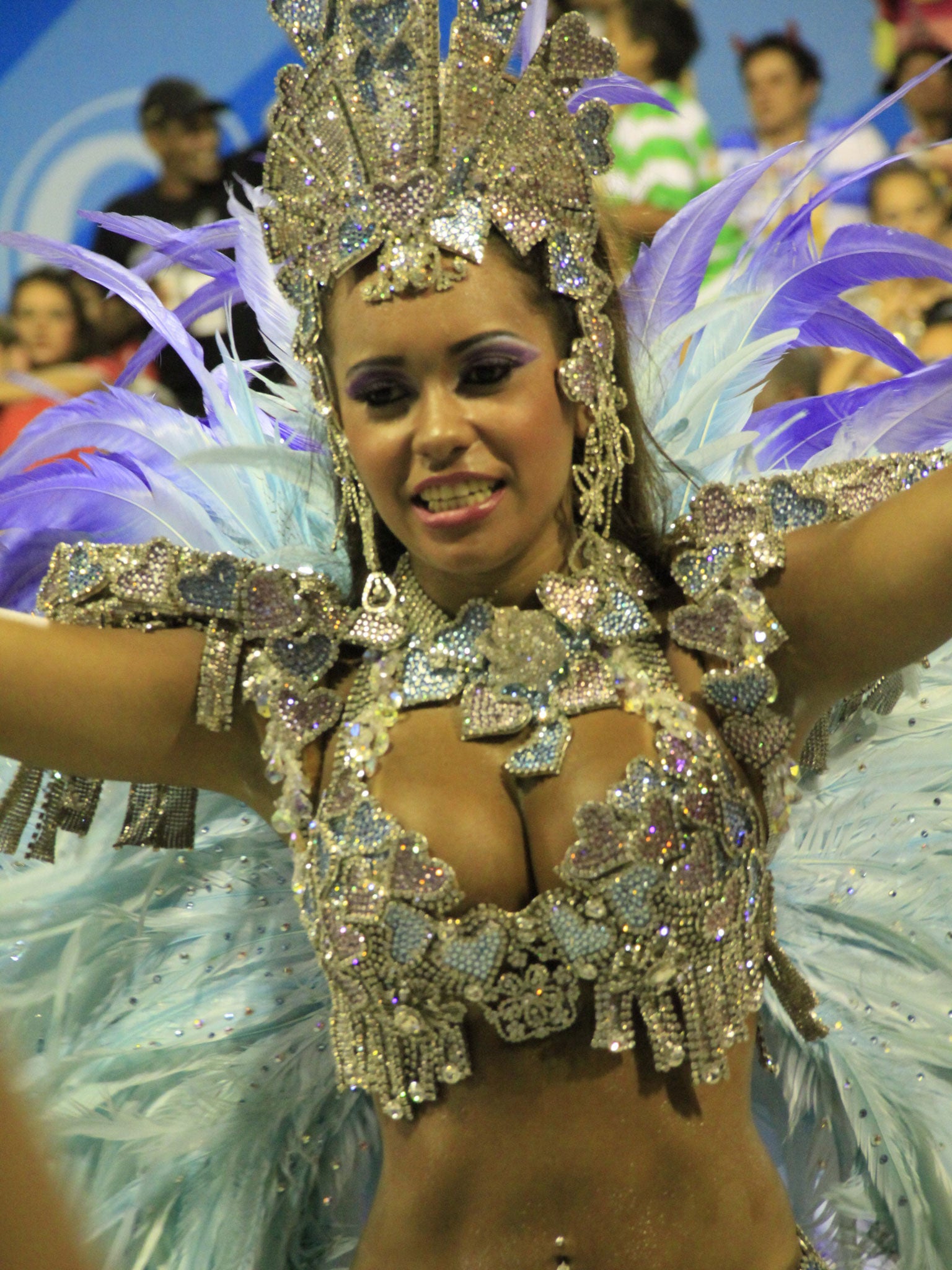Rio Carnival 2014 in numbers: Brazil kicks off the greatest party on earth tomorrow – but where will the Samba parades take you?
Festivities run from 28 February to 4 March – with street parties and dance shows across the whole country

Your support helps us to tell the story
From reproductive rights to climate change to Big Tech, The Independent is on the ground when the story is developing. Whether it's investigating the financials of Elon Musk's pro-Trump PAC or producing our latest documentary, 'The A Word', which shines a light on the American women fighting for reproductive rights, we know how important it is to parse out the facts from the messaging.
At such a critical moment in US history, we need reporters on the ground. Your donation allows us to keep sending journalists to speak to both sides of the story.
The Independent is trusted by Americans across the entire political spectrum. And unlike many other quality news outlets, we choose not to lock Americans out of our reporting and analysis with paywalls. We believe quality journalism should be available to everyone, paid for by those who can afford it.
Your support makes all the difference.With celebrations set to kick off tomorrow in Brazil for the world’s most famous annual party, millions of tourists from around the globe are about to experience the vibrant parades and elaborate costumes of Carnival.
In defiance of the economic turmoil and political unrest that has marred the country’s image on the international stage in recent months, some regions are visitor numbers to “more than double” this year, in a much-needed boost to the nation’s tourism industry.
The biggest party will centre on Rio de Janeiro, and the city expects to welcome 920,000 tourists over the course of the long weekend.
Tomorrow around 75,000 spectators will be seated at the heart of the action in Rio’s Sambodrome, which every year hosts a spectacular opening ceremony to begin festivities.
The symbolic overseer of Latin American carnivals, King Momo, will be crowned by the city’s mayor before the start of the year’s first official samba parade.
According to the city’s tourism board, in Rio alone the Carnival will generate around BRL $2.2 billion (£570 million), three-quarters of which comes from tourists alone.
While locals describe the Rio Carnival as “the greatest show on Earth”, celebrations of one kind or another will take place in cities across the whole country.
In the state of Bahia – which alone will welcome up to 700,000 tourists – the city of Salvador famously dedicates a 15-miles stretch of its streets to parades, which are free for all to attend.
Sao Paulo’s Carnival is known for its competition for the Samba award, as the city’s dance schools compete to get the most audience members involved.
Ítalo Cardoso, Vice president of São Paulo’s Tourism Board (SPTuris) said that while last year 14,000 people came to the city’s celebrations from abroad: “I believe the number of visitors will more than double this year.”
Another highlight is the Lesbian, Gay, Bisexual and Transgender centre of carnival, Florianópolis. It hosts the famous Pop Gay beauty contest for drag queens and transgender people, attracting between 40,000 to 50,000 people.
In total – and with the added boost of the 2014 World Cup – the Brazilian tourist board is expecting overall numbers of foreign visitors for the year to reach 7.2 million.
More facts about the Rio Carnival 2014:
• Rio Carnival is always celebrated the weekend before the beginning of Lent and ends on 'Fat Tuesday', the day before the start of Lent, Ash Wednesday. The festival dates back as far as 1723.
• There are more than 200 different Samba schools that participate in the Rio Carnival.
• Some of the schools are expected to spend up to £3 million on outfits and preparations, with the city's poorest residents, from the favelas, typically make up the majority of the schools.
• There are more than 2 million people on the streets every day during the carnival.
Join our commenting forum
Join thought-provoking conversations, follow other Independent readers and see their replies
Comments